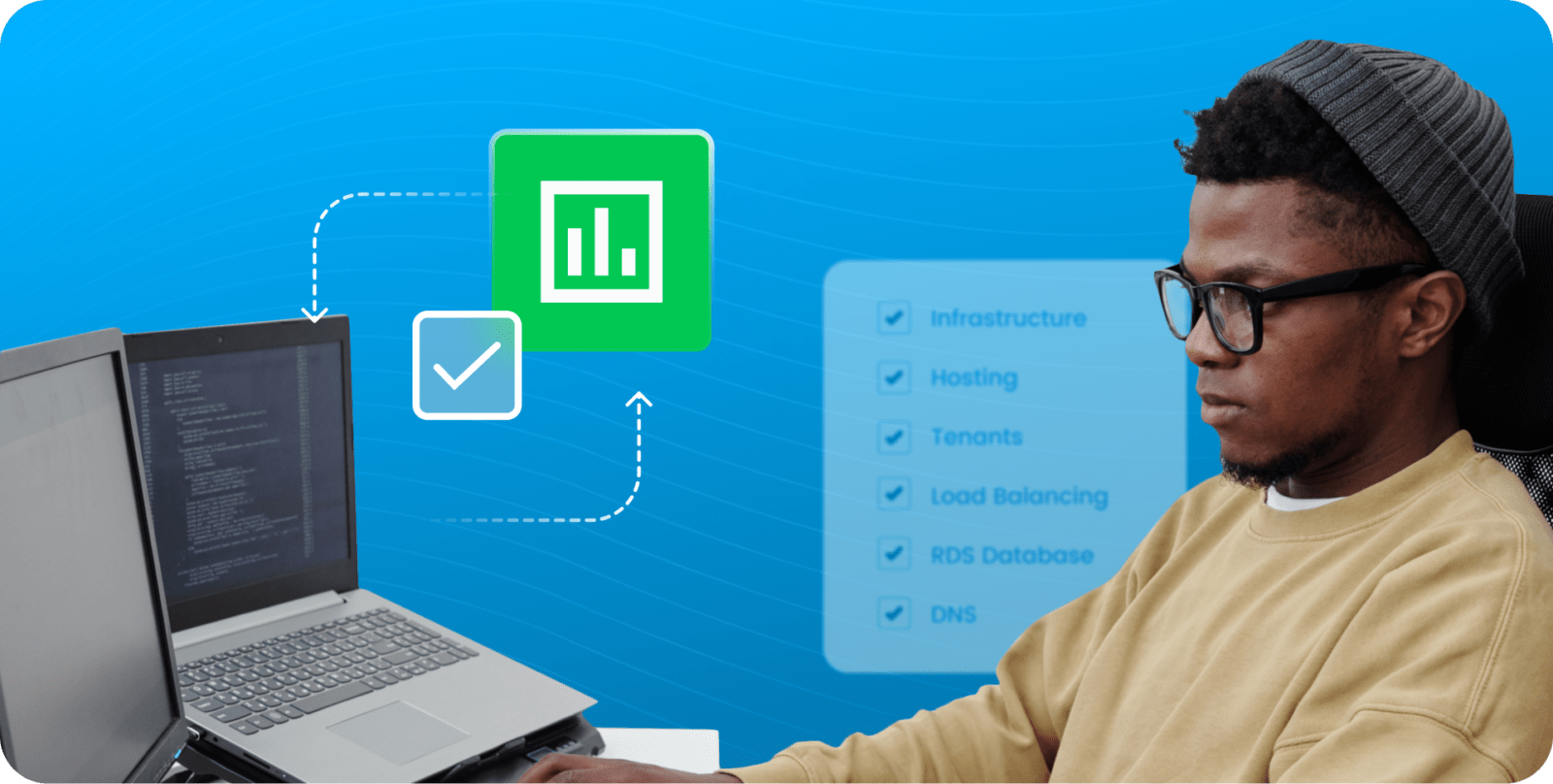Find out what will make an effective DevSecOps engineer for your business
Software development has become an increasingly specialized field over time — generally speaking. What began as the general work of “programmers” split down into work assigned to systems engineers and administrators, database developers and full-stack developers, and so on. But modern companies have discovered that, when it comes to creating software quickly and securely, there’s no substitute for team members involved with every part of a product’s lifecycle. This is the field of DevSecOps engineers.
But what does operating within such a broad range of duties mean? And given their far-reaching responsibilities, how can you be sure you’re working with (or as) an effective DevSecOps engineer? Let’s start with a definition of the term and build up from there.
What Is a DevSecOps Engineer?
A DevSecOps engineer is a worker equipped to deal with three distinct fields that are essential to prioritize across each stage of modern software creation: development, security, and operations. That means they’re involved with creating the software itself, ensuring its security and compliance, and maintaining its reliable operation.
The same fundamental principles that govern DevSecOps engineers also guide DevOps engineers — it could be argued that they’re two different terms for the same practices. But adding “security” to the middle of the job title underscores both the organization and the employee’s commitment to deeply integrated security and compliance measures in their products. In other words, it reflects an internal decision to shift security left on the project timeline rather than leaving it as a potentially costly afterthought.
As awareness spreads of significant incidents, from one-off ransomware attacks to state-linked intrusions, more companies are adopting a DevSecOps approach to improve their cybersecurity posture.
Ready to take your utilization of DevSecOps to the next level? Check out The Comprehensive Guide to DevSecOps.
Understanding the DevSecOps Engineer Job Market
With median salaries grossing more than $120k per year, DevSecOps engineers are in high demand. Pay rates will likely grow at a healthy pace over the coming years as companies across the US — led by notable brands such as Netflix, Etsy, Twitter, Google, and Meta — are gobbling up DevSecOps talent to build their in-house capabilities. Not surprisingly, the outlook for the global DevSecOps market reflects this trend: It’s projected to grow by almost a factor of ten by 2028, moving from a $2.55B valuation to $23.42B at an impressive compound annual growth rate (CAGR) of 32.2%.
It’s important to note that not all this growth is driven by organizations developing traditional DevSecOps teams. Some innovative companies, especially mid-sized companies, are electing to use DevSecOps solutions like DuploCloud instead. DuploCloud is the platform version of a DevSecOps team that uses automation to bake security and compliance requirements directly into cloud applications — accelerating time to compliance and time to market. Explore our solutions page to learn more about this powerful platform.

8 Skills Every DevSecOps Engineer Should Have
DevSecOps engineers are the “jack-of-all-trades” of IT. These professionals not only possess a broad skillset touching on everything from internal communications to software development, but they also need to achieve mastery in many of these areas. It is a complex and demanding job; these qualities separate the best from the rest.
Educational Skillset
- Relevant Technical Degree: Like many jobs in the cybersecurity space, most DevSecOps engineers have at least a bachelor's degree in cybersecurity, computer science, or computer engineering. That said, majoring in math, engineering, or science also provides a good foundation for a career in this field, so employers looking to hire a quality DevSecOps engineer shouldn’t automatically exclude candidates who don’t have the standard educational pedigree.
- Robust Industry Certifications: Employers also shouldn’t count out potential hires who lack a technical degree entirely, as numerous professional certifications provide the training necessary to succeed in this role. Some of the best options include certifications from Cisco, CompTIA, DevOps Institute, and Practical DevSecOps. Other organizations — such as EC-Council and (ISC)² — also have certification programs that are great for this career path.
Soft Skills
- Strong Communication Abilities: As technical as a DevSecOps engineer’s job is, it’s also highly people-oriented. To be successful, DevSecOps engineers should be able to communicate complex and sometimes alien concepts to stakeholders across the organization in clear, concise, and to-the-point language. Whether over an email or in a face-to-face meeting, these professionals have to be able to unpack scalability, automation, and other intricate ideas without reaching for jargon.
- A Team Player Mentality: Because DevSecOps engineering is a cross-functional role, a candidate needs to be able to think and act like a team player. Some of the colleagues they work with may be entirely unfamiliar with DevSecOps — or unsure of its usefulness — so DevSecOps engineers must continually bridge gaps to create a genuine internal momentum around their initiatives.
Hard Skillset
- A Command of the Core Principles: One of the most important competencies any DevSecOps engineer should develop is a rock-solid understanding of the discipline's unique guiding principles. These include a working knowledge of implementing automated testing, rapid and incremental software updates, developer-led security improvements, and threat preparation practices. DevSecOps engineers also prioritize continuous compliance.
- General Software Development Expertise: DevSecOps engineers should have the software development chops to build any tool or application they need to address their organization's security vulnerabilities. They should be fluent in programming languages such as Python and Java, comfortable using developer tools including GitHub and Docker, and have a comprehensive understanding of project management methodologies, such as Agile.
- Deep Cybersecurity Knowledge: As cybersecurity is a core component of the DevSecOps engineer’s job description, these professionals need to know the latest risk assessment techniques, threat modeling approaches, cybersecurity threats, and best practices. They should also know how to use relevant tools such as ThreatModeler, Checkmarx, and Aqua.
- Competence with the DevOps Toolkit: DevSecOps engineers should be able to use common DevOps configuration and automation programs such as Chef, Ansible, and Puppet. These tools help DevSecOps engineers accelerate the impact they can have on the software development pipeline.
How to Implement DevSecOps Without Hiring
Although some companies choose to develop internal DevSecOps teams, this approach is expensive and time-consuming. Consequently, many organizations — particularly small and mid-sized companies — are opting instead for DevSecOps solutions that provide the same benefits without the associated risks.
Accessible via web UI, Terraform Provider, or API, DuploCloud is DevSecOps-as-a-Service, allowing developers to translate high-level specifications into cloud-native applications with security and compliance built-in. Explore our solutions page to learn how this platform can accelerate your software development pipeline.









